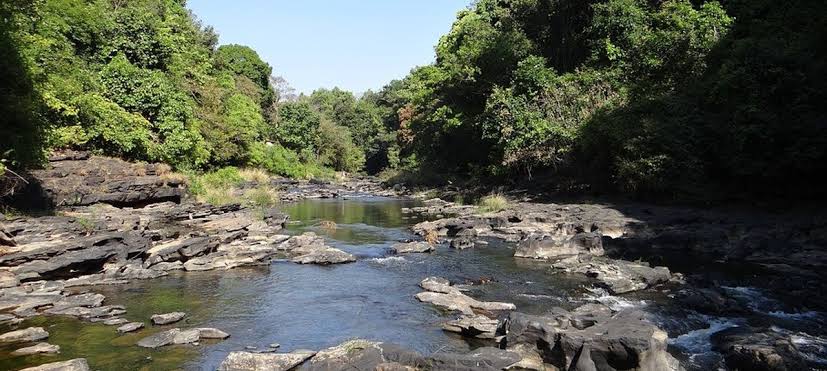Mhadei river belongs to all the people and the distribution of its flow, its waters and benefits must be equitable

Inter-state river water disputes are one of the most contentious issues in Indian federalism today. The Interstate River Water Disputes Act, 1956 was enacted on the eve of the reorganization of states on a linguistic basis to resolve water disputes that would occur in the use, control and distribution of an interstate river or river valley. Today, disputes persist and the aggrieved State ends up being morally wounded.
In July 2002, the State of Goa made a request under Section 3 of the Inter-State River Water Disputes Act, 1956 (as amended) for constitution of the Tribunal under the said Act and referred the matter for adjudication and decision of dispute relating to Mandovi River. The issues cited included the assessment of available utilizable water resources in the basin at various points and allocation of this water to the three basin States keeping in view priority of the use of water within the basin and decide the machinery to implement the decision of the tribunal. The Act requires that Central Government shall constitute a tribunal if the water dispute cannot be settled by negotiation.
The Mhadei water sharing row between Goa and Karnataka has flared up with Karnataka claiming victory and Goa left with the Supreme Court as the only path to claim justice. The streets have erupted in anger having been clearly let down by the BJP at the Centre and a lethargic and blurred approach by the State. For decades BJP governments have procrastinated, thus, depriving Goa with hope of an equitable solution. Karnataka may unjustly walk away with victory and the harsh consequences will leave Goan farmers in distress and general population thirsty. It would wreak havoc on Goa’s economy. Goans must clog this path using all democratic and judicial avenues.
Karnataka’s decision to go ahead with a water diversion project on river Mhadei has escalated its long-standing dispute on the issue with neighboring Goa. Karnataka claims it has received clearance from the Centre for two Detailed Project Reports (DPRs) on the Kalasa-Bhandura Nullah on the Mhadei. While Karnataka has dug in its heels, Goa can only trust that peoples’ power and a fair judicial assessment will swing things in a just manner.
The SC may also find a just solution and not allow political calculations to prevail in the matter. With an election coming up in Karnataka, both the Centre and Karnataka will want victory so it can make political gains. It is, after all, a State which sends 28 members to the Lok Sabha and 12 to the Rajya Sabha. Political arithmetic gives Karnataka more than an edge if politics were to trump justice.
A victory in favour of Karnataka can bring misery to many Goans. Environmentalist Rajendra Kerkar argues that a loss on the Mhadei River sharing will make it next-to-impossible to retrieve the future of Goa. Kerkar has pertinently observed: "Goan politicians are ignorant and have a negligent attitude towards environmental issues such as the Mhadei River water diversion. Goa government is being two-faced in pretending to be unaware of the Mhadei issue and is denying open information to the people."
Karnataka is proceeding to construct more than 12 dams on the banks of the Mhadei River even while the matter is yet to be resolved in the Supreme Court. By diverting huge quanta of water to Karnataka, the impacts on the 12 rivers from Goa and the biodiversity surrounding them will have irreversible and devastating effects in Goa. Kerkar has demonstrated how these can severely affect the flora and fauna found in the Western Ghats and in the vicinity of the Mhadei from the point where it originates.
One of the most immediate dangers that water diversion through dams is the Western Ghats will suffer destruction. After all, rivers are the life line of people and the ecosystem in more ways than one. When biodiversity is shattered, the pollution of rivers will follow and the consequence will inflict irreversible health and environmental problems for the people. With its multiple side effects, Mhadei water diversion will leave the people of South Goa with problems of drinking water which now originates from the Selaulim Dam.
In economics and in an ecological context, the tragedy of the commons is a situation in which individual users, who have open access to a resource unhampered use by shared social structures or formal rules that govern access and use, act independently according to their own self-interest and, contrary to the common good of all users.
The global water justice movement is currently incorporating concerns about the growing ecological water crisis with the promotion of just economic, food and trade policies to ensure water for all. Within such a framework, it is assumed that all humans have rights to certain common heritages, be they the atmosphere and oceans and freshwater. In most traditional societies, it was assumed that what belonged to one belonged to all. Likewise, the Mhadei belongs to all the people and the distribution of its flow and benefits must be equitable. Many indigenous societies to this day cannot conceive of denying a person or a family basic access to food, air, land, water and livelihood. Farmer’s interests lie in preserving water for food, environmentalist’s interests are in-stream habitats. Industry wants to corporatize water and trade for profit. Difficult as it may be, only an intersectional approach rooted in justice can assuage conflicting interests. Legal recourse is not a way to resolve water-sharing disputes. Motherhood is not defined by human judges. Mhadei neither belongs to Karnataka nor Goa. It is Mother. Let those who adjudicate over it, grant the people of Goa and Karnataka the justice and blessings of a Mother!